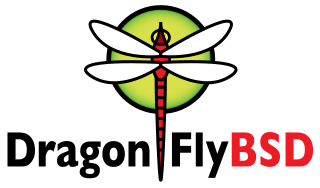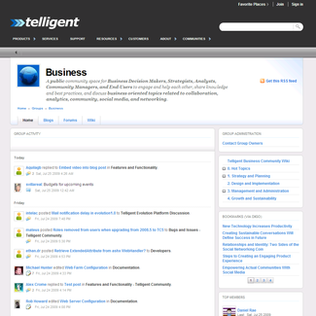 W
WApache Flex, formerly Adobe Flex, is a software development kit (SDK) for the development and deployment of cross-platform rich Internet applications based on the Adobe Flash platform. Initially developed by Macromedia and then acquired by Adobe Systems, Adobe donated Flex to the Apache Software Foundation in 2011 and it was promoted to a top-level project in December 2012.
 W
WThe Apache OpenNLP library is a machine learning based toolkit for the processing of natural language text. It supports the most common NLP tasks, such as language detection, tokenization, sentence segmentation, part-of-speech tagging, named entity extraction, chunking, parsing and coreference resolution. These tasks are usually required to build more advanced text processing services.
 W
WAVSnap is a freeware audio/visual system integration and design software that was created by Altinex Inc. in 2004. The software started as a way to create a visual routing diagram of and audio/visual system, that is similar to an A/V schematic or a Computer network diagram. As the software matured over the next 5 years, many features were added to increase AVSnap's capability.
 W
WCabos was a free gnutella file sharing program. It was based on LimeWire's open source source code, and had a similar feel in terms of interface. However, its simplistic and minimalistic design lacked the chat and library features found in LimeWire. Also, while LimeWire is completely written in Java, the GUI of Cabos was written in REALbasic.
 W
WCalligra Plan is a project management application that can create Gantt-style charts and is part of Calligra Suite – formerly included with KOffice.
 W
WColloquy is an open-source IRC, SILC, ICB and XMPP client for Mac OS X. Colloquy uses its own core, known as Chat Core, although in the past it used Irssi as its IRC protocol engine. One of the primary goals behind Colloquy was to create an IRC, SILC and ICB client with Mac OS X visuals. Colloquy contains a user interface that follows Apple's Human interface guidelines in addition to containing support for traditional IRC command-line controls such as /nick and /join.
 W
WCryEngine is a game engine designed by the German game developer Crytek. It has been used in all of their titles with the initial version being used in Far Cry, and continues to be updated to support new consoles and hardware for their games. It has also been used for many third-party games under Crytek's licensing scheme, including Sniper: Ghost Warrior 2 and SNOW. Warhorse Studios uses a modified version of the engine for their medieval RPG Kingdom Come: Deliverance. Ubisoft maintains an in-house, heavily modified version of CryEngine from the original Far Cry called the Dunia Engine, which is used in their later iterations of the Far Cry series.
 W
WDaVinci Resolve is a color correction and non-linear video editing (NLE) application for macOS, Windows, and Linux, originally developed by da Vinci Systems, and now developed by Blackmagic Design following its acquisition in 2009. In addition to the commercial version of the software, Blackmagic Design also distributes a free edition, with reduced functionality, simply named DaVinci Resolve.
 W
WDragonFly BSD is a free and open-source Unix-like operating system forked from FreeBSD 4.8. Matthew Dillon, an Amiga developer in the late 1980s and early 1990s and FreeBSD developer between 1994 and 2003, began working on DragonFly BSD in June 2003 and announced it on the FreeBSD mailing lists on 16 July 2003.
 W
Wdvdisaster is a computer program aimed to enhance data survivability on optical discs by creating error detection and correction data, which is used for data recovery. dvdisaster works exclusively at the image level. This program can be used either to generate Error-Correcting Code (ECC) data from an existing media or to augment an ISO image with ECC data prior to being written onto a medium. dvdisaster is free software available under the GNU General Public License.
 W
WEasy Projects is a suite of project management software developed by Toronto-based Logic Software. As an example of web based project management software, Easy Projects is designed to enable online project management via a browser, rather than manual tracking or desktop software applications.
 W
WElgg is open source social networking software that provides individuals and organizations with the components needed to create an online social environment. It offers blogging, microblogging, file sharing, networking, groups and a number of other features. It was also the first platform to bring ideas from commercial social networking platforms to educational software.
 W
WThe eLesson Markup Language (eLML) is an open source XML framework for creating electronic lessons. It is a "spin-off" from the GITTA project, a Swiss GIS eLearning project, and was launched in spring 2004. The eLML project is hosted at Sourceforge. The aim of eLML was to offer authors a tool that ensured conformity to pedagogical guidelines.
 W
WEx Falso is a free and open source, cross-platform audio tag editor and library organizer. It is a user interface sharing the same backend software as Quod Libet, minus the ability to play music. It is developed by the same software team responsible for Quod Libet.
 W
WFityk is a curve fitting and data analysis application, predominantly used to fit analytical, bell-shaped functions to experimental data. It is positioned to fill the gap between general plotting software and programs specific for one field, e.g. crystallography or XPS.
 W
WFree Download Manager is a download manager for Windows, macOS, Linux and Android.
 W
WFreeBASIC is a multiplatform, free/open source (GPL) BASIC programming language and compiler for Microsoft Windows, protected-mode MS-DOS, Linux, FreeBSD and Xbox. The Xbox version is no longer maintained.
 W
WFreeUndelete is a freeware data recovery software utility, running under Microsoft Windows 7, Vista, XP, 2003 and 2000. FreeUndelete supports NTFS and FAT file systems.
 W
WFrostWire is a free and open-source BitTorrent client first released in September 2004, as a fork of LimeWire. It was initially very similar to LimeWire in appearance and functionality, but over time developers added more features, including support for the BitTorrent protocol. In version 5, support for the Gnutella network was dropped entirely, and FrostWire became a BitTorrent-only client.
 W
WGmail is a free email service developed by Google. Users can access Gmail on the web and using third-party programs that synchronize email content through POP or IMAP protocols. Gmail started as a limited beta release on April 1, 2004 and ended its testing phase on July 7, 2009. By October 2019, Gmail had 1.5 billion active users worldwide.
 W
WThe public history of Gmail dates back to 2004. Gmail, a free, advertising-supported webmail service with support for Email clients, is a product from Google. Over its history, the Gmail interface has become integrated with many other products and services from the company, with basic integration as part of Google Account and specific integration points with services such as Google+, Google Calendar, Google Drive, Google Hangouts, Google Meet, YouTube, and Google Buzz. It has also been made available as part of G Suite. The Official Gmail Blog tracks the public history of Gmail from July 2007.
 W
WGNOME SoundConverter is an unofficial GNOME-based free and open-source transcoder for digital audio files. It uses GStreamer for input and output files. It has multi threaded design and can also extract the audio from video files.
 W
WGoogle Desktop was a computer program with desktop search capabilities, created by Google for Linux, Apple Mac OS X, and Microsoft Windows systems. It allowed text searches of a user's email messages, computer files, music, photos, chats, Web pages viewed, and the ability to display "Google Gadgets" on the user's desktop in a Sidebar.
 W
Wid Tech 4, popularly known as the Doom 3 engine, is a game engine developed by id Software and first used in the video game Doom 3. The engine was designed by John Carmack, who also created previous game engines, such as those for Doom and Quake, which are widely recognized as significant advances in the field. This OpenGL-based game engine has also been used in Quake 4, Prey, Enemy Territory: Quake Wars, Wolfenstein, and Brink.
 W
WIObit Malware Fighter is an anti-malware and anti-virus program for the Microsoft Windows operating system. It is designed to remove and protect against malware, including, but not limited to: Trojans, rootkits, and ransomware.
 W
WJakarta Server Faces is a Java specification for building component-based user interfaces for web applications and was formalized as a standard through the Java Community Process being part of the Java Platform, Enterprise Edition. It is also a MVC web framework that simplifies construction of user interfaces (UI) for server-based applications by using reusable UI components in a page.
 W
WJkDefrag is a free open-source disk defragmenting utility computer program for Windows. It was developed by Jeroen Kessels beginning in 2004 and is released under the GNU General Public License. The "Jk" part of the utility name is taken from the developer's name, Jeroen Kessels. In 2008, from version 4, much changed from previous versions; JkDefrag was renamed MyDefrag by its developer, and JkDefrag was discontinued, although still available. MyDefrag is closed source freeware. The MyDefrag website is defunct as of 2016. The JKdefrag website is still active, but all download files have been removed.
 W
WKodi is a free and open-source media player software application developed by the XBMC Foundation, a non-profit technology consortium. Kodi is available for multiple operating systems and hardware platforms, with a software 10-foot user interface for use with televisions and remote controls. It allows users to play and view most streaming media, such as videos, music, podcasts, and videos from the Internet, as well as all common digital media files from local and network storage media.
 W
WThe KRISTAL Audio Engine is a digital audio workstation for Microsoft Windows. It is free for personal & educational use, with licensing options for commercial use.
 W
WMediaPortal is an open-source media player and digital video recorder software project, often considered an alternative to Windows Media Center. It provides a 10-foot user interface for performing typical PVR/TiVo functionality, including playing, pausing, and recording live TV; playing DVDs, videos, and music; viewing pictures; and other functions. Plugins allow it to perform additional tasks, such as watching online video, listening to music from online services such as Last.fm, and launching other applications such as games. It interfaces with the hardware commonly found in HTPCs, such as TV tuners, infrared receivers, and LCD displays.
 W
WMicrosoft Baseline Security Analyzer (MBSA) is a discontinued software tool which is no longer available from Microsoft that determines security state by assessing missing security updates and less-secure security settings within Microsoft Windows, Windows components such as Internet Explorer, IIS web server, and products Microsoft SQL Server, and Microsoft Office macro settings. Security updates are determined by the current version of MBSA using the Windows Update Agent present on Windows computers since Windows 2000 Service Pack 3. The less-secure settings, often called Vulnerability Assessment (VA) checks, are assessed based on a hard-coded set of registry and file checks. An example of a VA might be that permissions for one of the directories in the /www/root folder of IIS could be set at too low a level, allowing unwanted modification of files from outsiders.
 W
WMono is a free and open-source .NET Framework-compatible software framework. Originally by Ximian, it was later acquired by Novell, and is now being led by Xamarin, a subsidiary of Microsoft and the .NET Foundation. Mono can be run on many software systems.
 W
WmtPaint is a free and open-source raster graphics editor for creating icons, pixel art and for photo editing. It is available for Microsoft Windows and Linux operating systems.
 W
Wmusikcube is a free and open-source cross-platform, terminal-based audio player software and streaming server.
 W
WNASA WorldWind is an open-source virtual globe. It was first developed by NASA in 2003 for use on personal computers and then further developed in concert with the open source community since 2004. As of 2017, a web-based version of WorldWind is available online. An Android version is also available.
 W
WOffice 2004 for Mac is a version of Microsoft Office developed for Mac OS X. It is equivalent to Office 2003 for Windows. The software was originally written for PowerPC Macs, so Macs with Intel CPUs must run the program under Mac OS X's Rosetta emulation layer. For this reason, it is not compatible with Mac OS X 10.7 and newer.
 W
WOfficeSuite is a cross-platform office suite application developed by MobiSystems. It has versions for Android, iOS and Microsoft Windows (PC) and adds extensive PDF abilities to its compatibility with the most frequently used Microsoft Office file formats. The software has over 220 million downloads on Google Play and is among the top Android business applications.
 W
WOpenFOAM is a C++ toolbox for the development of customized numerical solvers, and pre-/post-processing utilities for the solution of continuum mechanics problems, most prominently including computational fluid dynamics (CFD).
 W
WOpenPuff Steganography and Watermarking, sometimes abbreviated OpenPuff or Puff, is a free steganography tool for Microsoft Windows created by Cosimo Oliboni and still maintained as independent software. The program is notable for being the first steganography tool that:lets users hide data in more than a single carrier file. When hidden data are split among a set of carrier files you get a carrier chain, with no enforced hidden data theoretical size limit implements 3 layers of hidden data obfuscation extends deniable cryptography into deniable steganography
 W
WPaint.net is a freeware raster graphics editor program for Microsoft Windows, developed on the .NET Framework. Paint.net was originally created by Rick Brewster as a Washington State University student project, and has evolved from a simple replacement for the Microsoft Paint program into a program for editing mainly graphics, with support for plugins.
 W
WPivot Animator is a freeware application that allows users to create stick-figure and sprite animations, and save them in the animated GIF format for use on web pages and the AVI format.
 W
WQuod Libet is a cross-platform free and open-source audio player, tag editor and library organizer. The main design philosophy is that the user knows how they want to organize their music best; the software is therefore built to be fully customizable and extensible using regular expressions. Quod Libet is based on GTK and written in Python, and uses the Mutagen tagging library. Ex Falso is the stand-alone tag-editing app based on the same code and libraries.
 W
WThe Ren'Py Visual Novel Engine is a free software engine which facilitates the creation of visual novels, a form of computer-mediated storytelling. Ren'Py is a portmanteau of ren'ai (恋愛), the Japanese word for 'romantic love', a common element of games made using Ren'Py; and Python, the programming language that Ren'Py runs on. Ren'Py has proved attractive to English-language hobbyists; many games use the Ren'Py engine, nearly all in English.
 W
WRSSOwl is a news aggregator for RSS and Atom News feeds. It is written in Java, and is built on the Eclipse Rich Client Platform which uses SWT as a widget toolkit to allow it to fit in with the look and feel of different operating systems while remaining cross-platform. Released under the Eclipse Public License, RSSOwl is free software.
 W
WRuby on Rails, or Rails, is a server-side web application framework written in Ruby under the MIT License. Rails is a model–view–controller (MVC) framework, providing default structures for a database, a web service, and web pages. It encourages and facilitates the use of web standards such as JSON or XML for data transfer and HTML, CSS and JavaScript for user interfacing. In addition to MVC, Rails emphasizes the use of other well-known software engineering patterns and paradigms, including convention over configuration (CoC), don't repeat yourself (DRY), and the active record pattern.
 W
WSchoolTool is a GPL licensed, free student information system for schools around the world. The goals of the project are to create a simple turnkey student information system, including demographics, gradebook, attendance, calendaring and reporting for primary and secondary schools, as well as a framework for building customized applications and configurations for individual schools or states.
 W
WScientific Linux (SL) is a Linux distribution produced by Fermilab, CERN, DESY and by ETH Zurich. It is a free and open-source operating system based on Red Hat Enterprise Linux.
 W
WShiira is a discontinued open source web browser for the Mac OS X operating system. According to its lead developer Makoto Kinoshita, the goal of Shiira was "to create a browser that is better and more useful than Safari". Shiira used WebKit for rendering and scripting. The project reached version 2.3 before it was discontinued, and by December 2011 the developer's website had been removed.
 W
WSleipnir is a tabbed web browser developed by Fenrir Inc. The browser's main features are customization and tab functions. It supports HTML5 and different layout engines.
 W
WTelligent Community is a community and collaboration software platform developed by Telligent Systems and was first released in 2004.
 W
WTiddlyWiki is a personal wiki and a non-linear notebook for organising and sharing complex information. It is an open-source single page application wiki in the form of a single HTML file that includes CSS, JavaScript, and the content. It is designed to be easy to customize and re-shape depending on application. It facilitates re-use of content by dividing it into small pieces called Tiddlers.
 W
WTrueCrypt is a discontinued source-available freeware utility used for on-the-fly encryption (OTFE). It can create a virtual encrypted disk within a file, or encrypt a partition or the whole storage device.
 W
WUbuntu is a Linux distribution based on Debian and mostly composed of free and open-source software. Ubuntu is officially released in three editions: Desktop, Server, and Core for Internet of things devices and robots. All the editions can run on the computer alone, or in a virtual machine. Ubuntu is a popular operating system for cloud computing, with support for OpenStack. Ubuntu's default desktop has been GNOME, since version 17.10.
 W
WUC Browser is a web browser developed by mobile internet company UCWeb, a subsidiary of the Alibaba Group. It is one of the most popular mobile browsers in China and Indonesia, and was the 8th most downloaded mobile app of the 2010–2019 decade.
 W
WWapedia was a mobile version of Wikipedia. It was started in August 2004 by Florian Amrhein and shut down on 4 November 2013. It was operated by Taptu.
 W
WWindows Live Web Messenger was the browser-based version of Windows Live Messenger developed by Microsoft which allowed users to send instant messages online and in real-time with others using the Microsoft Messenger service from within a web browser. The service allowed users without administrative privileges on their computer, such as at a shared public computer, to chat with others on their Messenger contact list without having to install the Windows Live Messenger client.
 W
WWindows XP Media Center Edition (MCE) is a version of the Windows XP operating system which was the first version of Windows to include Windows Media Center, designed to serve as a home-entertainment hub. The last version, Windows XP Media Center Edition 2005, was released on October 12, 2004. After that, Windows Media Center was included in certain editions of later Windows versions. It was an optional, paid addition to Windows 8 and then discontinued in Windows 10.
 W
WWindows XP is an operating system produced by Microsoft as part of the Windows NT family of operating systems. It was the successor to both Windows 2000 for professional users and Windows Me for home users. It was released to manufacturing on August 24, 2001, and broadly released for retail sale on October 25, 2001.
 W
WZNC is an IRC network bouncer or BNC. It can detach the client from the actual IRC server, and also from selected channels. Multiple clients from different locations can connect to a single ZNC account simultaneously and therefore appear under the same nickname on IRC. It supports Transport Layer Security connections and IPv6.